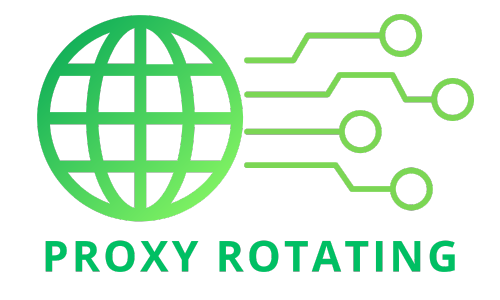One question frequently arises in the rapidly evolving digital landscape: What is Blockchain? This revolutionary technology, best known for underpinning cryptocurrencies like Bitcoin, extends far beyond just a new form of money. It offers a blueprint for a new economy, transforming how we transact, secure data, and establish trust in a decentralized manner. The benefits of Blockchain are manifold, including enhanced security, increased transparency, and eliminating intermediaries, paving the way for more direct and efficient transactions. Dive into this Proxy Rotating article to explore how the blockchain blueprint for a new economy promises a future where digital trust is paramount, and every transaction is transparent and secure.
What is Blockchain?
Blockchain acts as a digital ledger, documenting transactions on numerous computers so that the information cannot be changed after the fact. It’s like a chain of digital “blocks” containing transaction records. Every block is linked to the ones preceding and succeeding it. This makes Blockchain secure and not easily manipulated by any single entity.
Learn about distributed ledger technology (DLT)
Distributed Ledger Technology (DLT) forms the core infrastructure underpinning Blockchain. It’s a digital system for recording the transaction of assets where the transactions and their details are recorded at multiple places simultaneously. In contrast to conventional databases, DLT lacks a centralized location for data storage or management functions. This means that every participant can access the data in real time and in a secure and immutable way.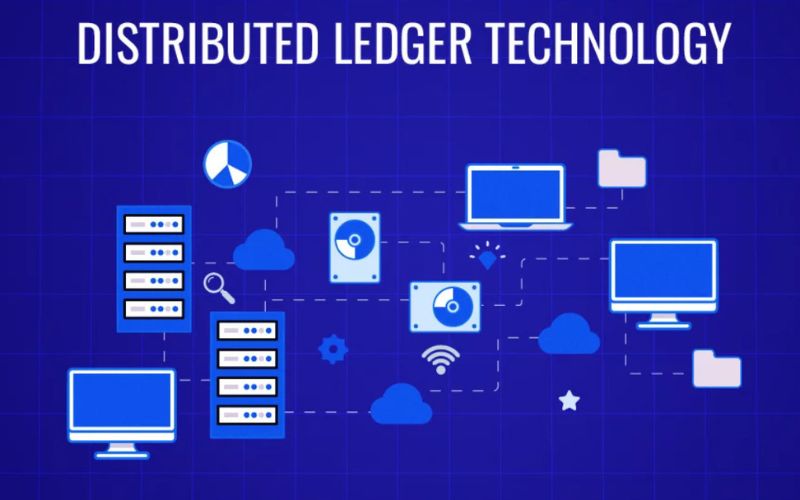
How does Blockchain work?
Blockchain works by recording transactions in ‘blocks’ with each block chained to the previous one, hence the name ‘blockchain.’ When a transaction occurs, it’s broadcasted to a network of computers, known as nodes, which validate the transaction. Once a block of transactions is completed, it’s added to the chain in a linear, chronological order. New blocks are always stored linearly and chronologically. They are also immutable, meaning they cannot be altered, making Blockchain a secure technology.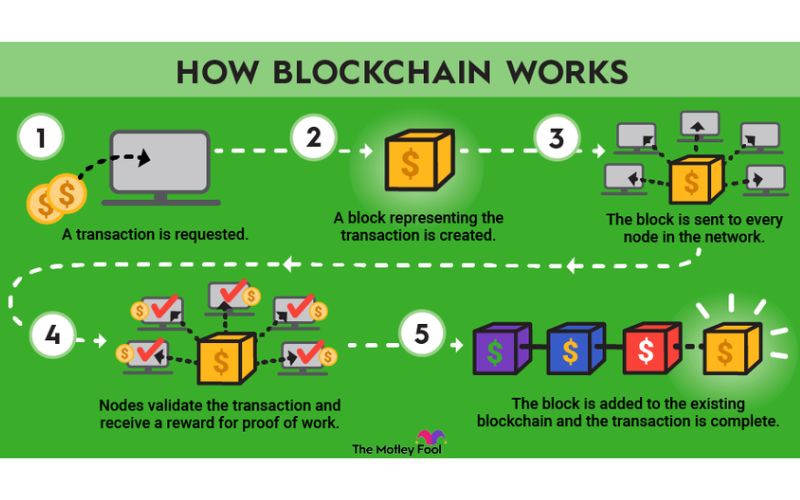
Benefits of blockchain blueprint for a new economy
Dive into the transformative benefits of blockchain technology and discover how it’s setting the stage for a new economic paradigm. From bolstering transparency to reshaping business models, Blockchain is at the forefront of financial innovation, serving as a foundational blockchain blueprint for a new economy.
Enhance transparency and trust.
Blockchain’s inherent design ensures that all transactions are transparent and immutable. Allowing all participants to view transaction histories fosters trust and integrity unparalleled in traditional systems, where information can be obscured or manipulated. This transparency is a cornerstone of the blockchain blueprint for a new economy, ensuring that every transaction is recorded and verifiable by all.
Enhance operational efficiency and streamline processes through automation.
Through smart contracts, Blockchain automates complex processes, reducing the need for manual intervention and thereby significantly increasing efficiency. This automation streamlines operations, slashing the time and resources needed to complete transactions.
Democratize the economy and increase individual power.
Blockchain decentralizes control, distributing power away from central authorities and into the hands of individual participants. This democratization can empower users, giving them more control over their financial and digital lives and creating a more equitable economic landscape.
Reduce transaction expenses and remove the need for intermediaries.
By facilitating peer-to-peer transactions without the need for intermediaries, Blockchain significantly reduces fees and costs associated with transactions. This makes transactions more efficient and opens up global access to financial services, especially for those previously excluded.
Create new and groundbreaking business models.
Blockchain technology paves the way for innovative business models that were previously inconceivable. From asset tokenization to decentralized finance (DeFi) platforms, it enables new ways of conducting business, trading, and investment, potentially revolutionizing entire industries.
Examples of applications of blockchain blueprint in a new economy:
- Supply chain management: Blockchain technology revolutionizes supply chain management by providing a transparent and immutable ledger. This allows for tracking product origin, journey, and quality assurance at every step of the supply chain, ensuring authenticity and reducing counterfeits.
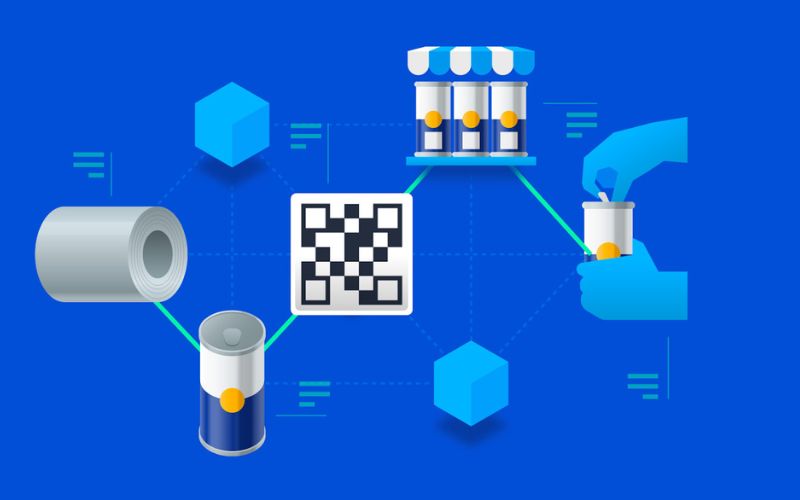
- Decentralized Finance (DeFi): DeFi uses Blockchain to create a transparent and accessible financial ecosystem free from traditional banking and financial institutions. Without intermediaries, it offers users safe, peer-to-peer financial services, including lending, borrowing, and investing.
- Digital identity: Managing digital identities becomes more secure and efficient with Blockchain. It offers individuals control over their personal information, reducing the risk of fraud and identity theft. This system allows for the secure and convenient verification of identities online.
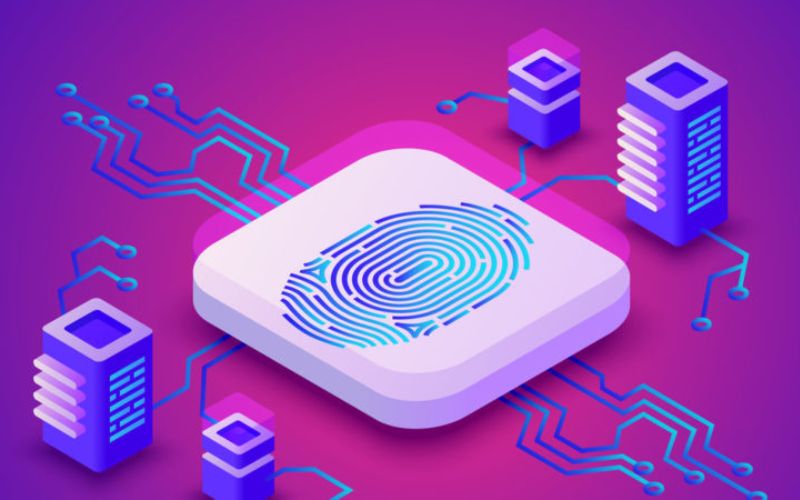
- Elections: Blockchain can transform the electoral process by offering a secure, transparent, and tamper-proof system. This ensures the integrity of the voting process, reduces the potential for fraud, and increases trust in election results.
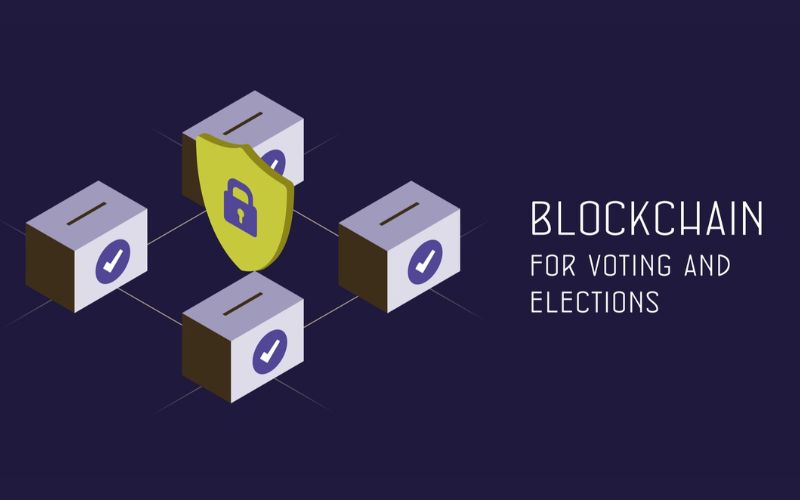
- Entertainment industry: Blockchain provides a means to protect intellectual property rights, ensuring creators are fairly compensated. It enables transparent and direct distribution of profits, cutting out intermediaries and allowing artists to connect directly with their audience.

Challenges and opportunities of Blockchain in a new economy
Regulatory framework and legal guidelines
One of the significant challenges facing blockchain technology is the need for a comprehensive legal framework and transparent regulations. Blockchain spans borders and sectors, so it often encounters inconsistent regulatory environments, creating uncertainty for businesses and investors. However, this also presents an opportunity for policymakers to establish forward-thinking regulations that foster innovation and ensure security and fairness in the blockchain blueprint for a new economy.
Scalability and performance
Blockchain technology, particularly in its early forms, faces issues with scalability and performance. The more it grows, the more data each node needs to process, leading to potential slowdowns and increased costs. This challenge allows developers and businesses to innovate on blockchain platforms. It creates more efficient and scalable solutions to handle more transactions and data, thus broadening its applicability in the blockchain blueprint for a new economy.
Deficiency in knowledge and awareness
Despite its growing popularity, a significant need remains for more understanding and awareness about blockchain technology among the general public and even within specific industries. This gap presents a barrier to adoption and trust. On the flip side, it offers a vast field for educational initiatives, consultancy, and development of user-friendly blockchain applications, thereby driving adoption and fostering a more informed user base in the context of the blockchain blueprint for a new economy.
Opportunities for pioneering and innovative businesses
The nascent stage of blockchain technology is ripe with opportunities for pioneering businesses willing to explore its uncharted territories. Innovative applications of Blockchain beyond cryptocurrencies—such as supply chain management, digital identity, and decentralized finance (DeFi)—provide fertile ground for startups and established businesses to develop groundbreaking solutions and carve out leadership positions in the new economy.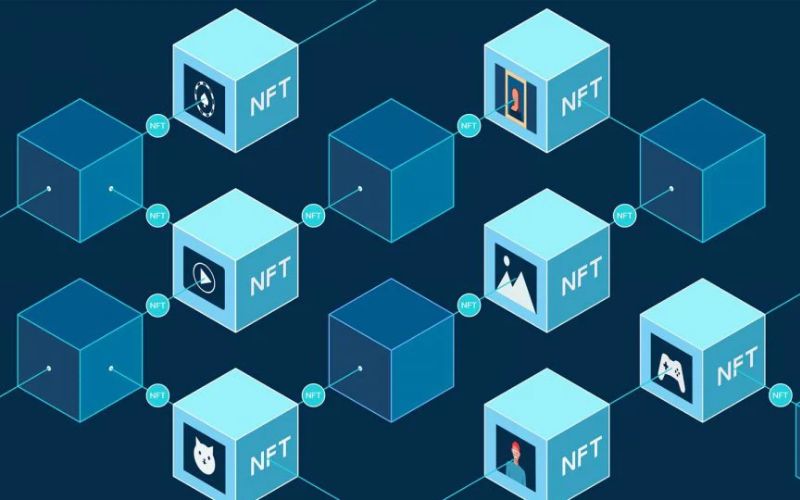
How can businesses utilize blockchain technology?
Blockchain technology offers significant opportunities for enterprises in diverse sectors. Here’s a roadmap to guide you on how to leverage Blockchain for your organization:
Identify a problem
The first step is identifying a specific pain point or challenge within your business that Blockchain can address. Does it involve inefficiencies in your supply chain? Lack of transparency in customer data? Security concerns around financial transactions? Defining a clear need will help determine if Blockchain is the right solution.
Evaluate feasibility
Not all business processes are ideal candidates for Blockchain. Research existing blockchain use cases in your industry and assess the technical feasibility of implementation. Consider factors like cost, scalability, and regulatory compliance.
Choose a blockchain platform.
Various public, private, and hybrid blockchain platforms are available, each with advantages and limitations. Research and select a platform that meets your needs and security requirements. Popular options include Ethereum, Hyperledger Fabric, and R3 Corda.
Develop a strategy
Craft a comprehensive strategy for integrating Blockchain into your business operations. This includes outlining the specific goals you aim to achieve, the resources required, and a timeline for implementation.
Build a team or partner.
Implementing Blockchain may require specialized expertise. Consider building an internal team with blockchain knowledge or partnering with a reputable blockchain development company.
Pilot and iterate
Start by implementing Blockchain on a small-scale pilot project. This allows you to test its functionality, identify challenges, and refine your approach before a full-scale deployment.
Address regulation
Stay abreast of evolving regulations surrounding blockchain technology. Ensure your implementation complies with all relevant legal frameworks.
Promote transparency and education.
Share the advantages of adopting Blockchain with your stakeholders, such as employees, customers, and partners. Educate them on how it will enhance security, efficiency, and trust within your business ecosystem.
While the concept may seem complex at first, blockchain technology has the potential to revolutionize the way we conduct business and interact with the world. Blockchain lays the groundwork for a new economic landscape by fostering transparency, streamlining processes, and empowering individuals. From supply chain management to digital identity, its applications are vast and constantly evolving.
Ready to explore how Blockchain can transform your business? Proxy Rotating websites can provide the resources and expertise you need to navigate this exciting new frontier, acting as a blockchain blueprint for a new economy. They can be your trusted guide whether you’re seeking to develop a blockchain-powered application or gain a deeper understanding of this transformative technology.
>>> See more:
Blockchain security assessment
Blockchain security testing checklist
